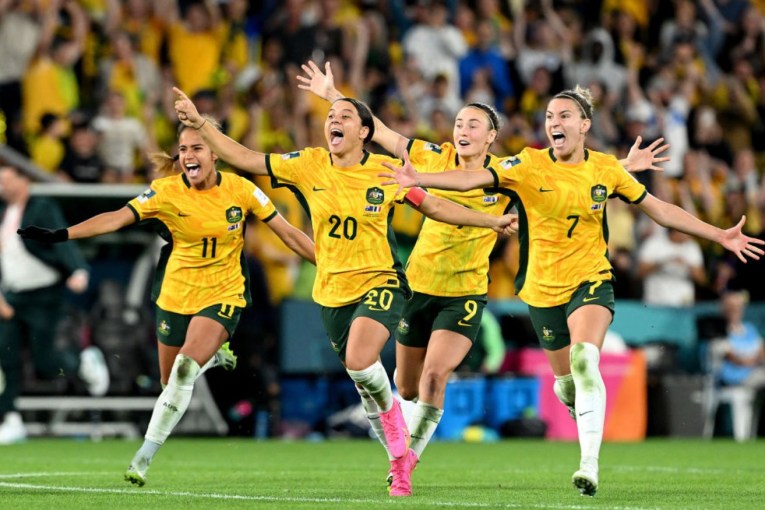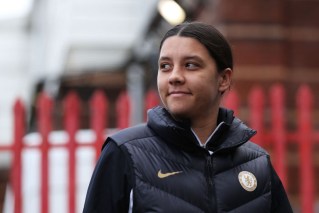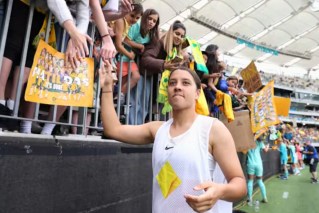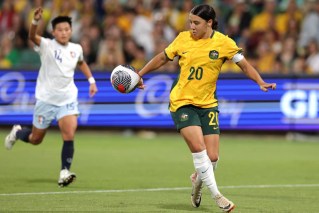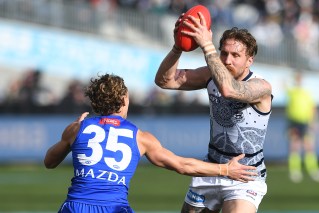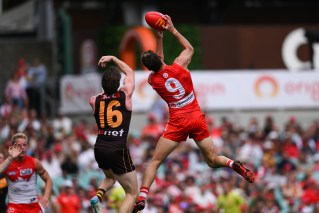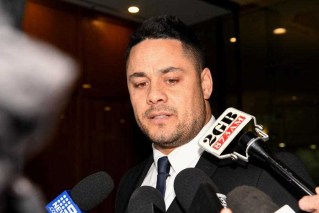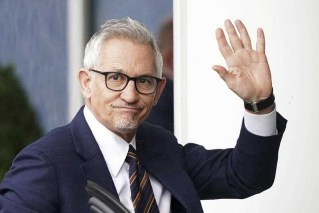The five biggest issues facing Australian football as it enters a new decade
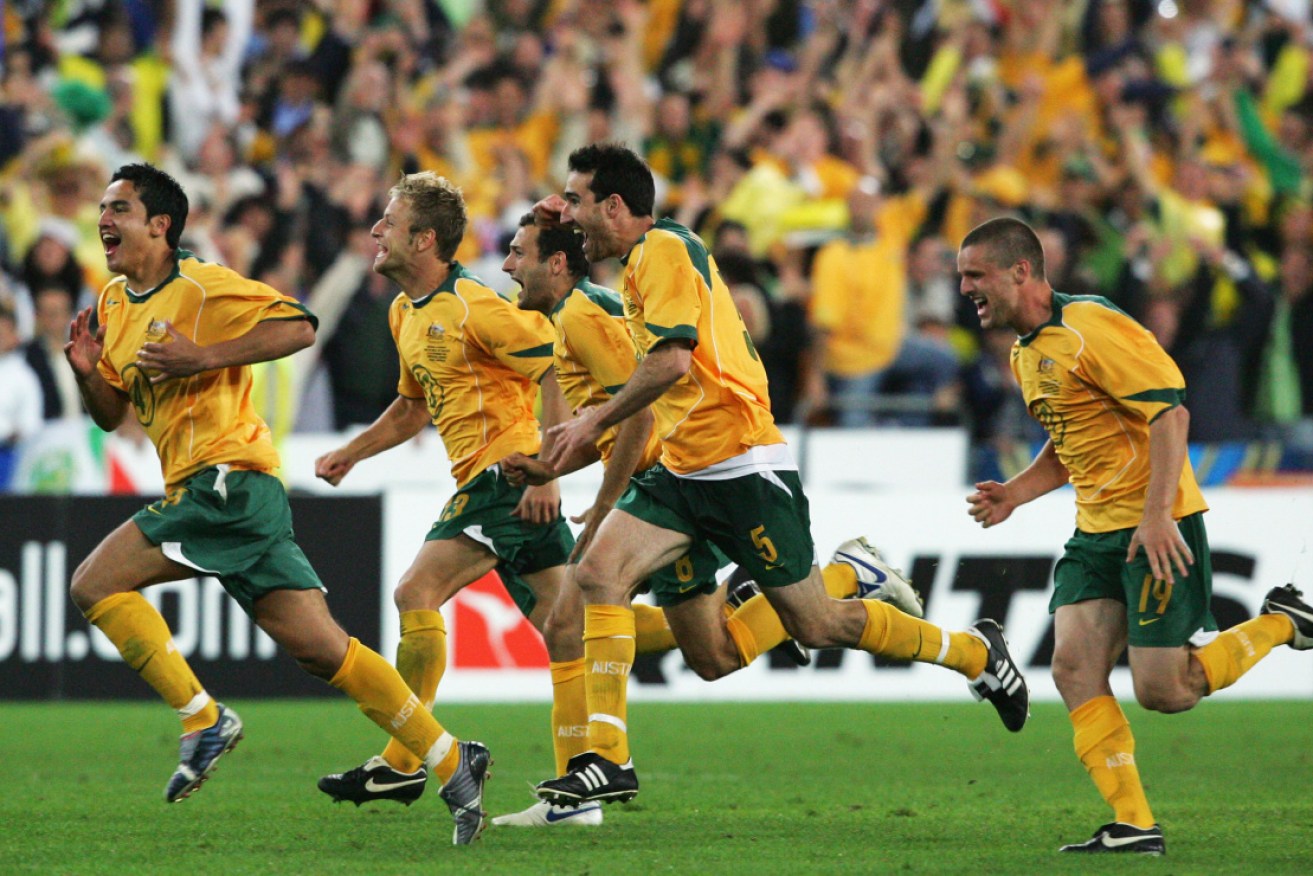
Golden Generation ... Qualifying for the 2006 World Cup was a massive boon for the game in Australia. Photo: Getty
Unite the Tribes
Saying Australian football is fractured is akin to saying it’s a tad warm right now.
The final years of football’s decade were defined by infighting and venomous point-scoring among its bitterly divided stakeholders; with the eventual, hard-won reforms resulting in a total upheaval of the way the sport is governed.
Even when parties were seemingly acting for the good of the game, a closer examination would all too often reveal that their actions were born not of altruism but, instead, through a brief convergence of an ulterior motive and greater good.
Yet hope springs eternal.
The A-League and W-League are now independent, all bar one –chairman Chris Nikou – of the FFA board is relatively fresh and the FFA has a new chief executive in James Johnson.
A potential clean(ish) slate.
The Board of Football Federation Australia today confirmed the appointment of respected international football executive James Johnson as its new Chief Executive Officer.https://t.co/Fo9FmZak5l
— Football Federation Australia (@FFA) December 5, 2019
Ultimately, as a relatively small player in a global market, some challenges Australian football can not overcome.
However unlikely, a united game – where stakeholders unite to pull together for a better future – can still accomplish great things.
An independent A-League and W-League
Long agitated for by its members, Australia’s professional leagues will complete their divorce from the FFA in the coming years in a move hoped to bring about a roaring 20s.
While there remain some contractual complications to iron out, the clubs are now tasked with – after talking the talk for so long – walking the walk and reinvigorating Australia’s domestic competitions.
Flagging TV ratings and attendances will need to be addressed, as will a rapidly evolving landscape in which streaming and non-traditional broadcasters are flexing their muscles and sponsorship is evolving.
Philosophical decisions about the direction of the competitions will also need to be wrestled with. They include:
- Is the salary cap long for this world?
- What type of football do we want to play?
- When is the next round of expansion?
- Is the W-League a partner or a competitor of the NWSL?
- Is the A-League a developmental league?
- What is our role in Asia?
Perhaps most important, is the question of a national second division and promotion and relegation.
A thriving, multi-tiered footballing pyramid with promotion and relegation is the best path for Australia to go down to create better footballers and, by extension, a better product.
But commercial realities must also be taken into account to ensure that expansion of the footballing ecosystem does no harm on a macro level.
Second divisions and promotion/relegation remain frustratingly divisive issues in Australian football and it’s important that its proponents get it right.
An implementation in a haphazard manner that collapses in on itself will damage the concept enough to ensure it isn’t a serious prospect for generations.
The 2022 FIFA World Cup
Qualifying for the 2006 World Cup gave football its biggest jolt of mainstream recognition ever – The Golden Generation creating a wave of momentum that took the game to new heights.
World Cup qualification has since become a key plank in football’s ongoing strategy, as it banks upon the sizeable reputational boost brought by the world’s biggest sporting event once every four years.
In a nation where A-League games very rarely attract more than 50,000 viewers, the Socceroos World Cup clash with France in 2018 attracted 3.4 million eyeballs to SBS.
What a decade it’s been for our Caltex @Socceroos!
We want you to tell us your favourite moment of the last 10 years.#GoSocceroos #AllForTheSocceroos https://t.co/bkbxgIPiYU
— Caltex Socceroos (@Socceroos) December 16, 2019
Fortunately – regardless of how misguided an idea it is – the expansion of the World Cup to 48 teams in 2026 means that Australia’s path is soon to become simpler.
Yet, that still leaves Qatar 2022.
At a time when the game is struggling for domestic relevance among the wider sporting public, Australian football can’t afford to miss qualification for the first time in almost 20 years.
The 2023 Women’s World Cup
If people like the Socceroos, they love the Matildas.
After 136,000 fans tuned into their opening match of the 2015 World Cup, 570,000 watched their opener against Italy this year and, despite crashing out in the round of 16, the Matildas remain Australia’s most-loved sporting team.
There is a palpable sense of momentum around the women’s game – and there would be no better way to capitalise on it than by bringing the 2023 Women’s World Cup to Australia and New Zealand.
.@FFA and @NZ_Football unveil @FIFAWWC 2023 hosting vision
▪️ Opening match in NZL, Final in AUS
▪️ Tickets starting at USD $5
▪️ 4 groups in AUS, 4 groups in NZL
▪️ Knockout phase travel between east coast of AUS and NZL only➡️https://t.co/fruwex6smV #AsOne
— AsOne2023 (@AsOne2023) December 16, 2019
While issues of skullduggery in the bidding process are a concern – it is a FIFA tournament after all – the potential legacy benefits to bringing the tournament Down Under are clear.
Lasting improvements to facilities, engagement and goodwill can continue to drive participation in the sport by young girls – an increasingly important battlefield for codes.
Hosting the tournament would also provide a significant boost to the popularity of the W-League and bolster its journey towards much needed stand-alone commercial viability.
Being a global citizen
Despite Australian football’s talent for navel-gazing being without equal, it has an important part to play as a global citizen.
Ongoing climate change presents an intrinsic threat to the summer-staged A-League and W-League’s viability and football’s role as the most popular sport on the planet instils with it a moral obligation to use its voice in the drive for action.
A Melbourne heatwave has forced a change to the kick-off time for @victorywleague v @brisbaneroar this weekend.
Check out all the details 👇https://t.co/TrG7nU2Cft
— Westfield W-League (@WLeague) December 18, 2019
There is a further duty to help promote human rights both at home and abroad, fight the scourge of racism and continue to march towards gender equality and LGBTQIA+ rights within the community.
Football – or sport – has never been apolitical.
And in the face of growing sports-washing and the siren’s song of the almighty dollar, it’s important it doesn’t lose its soul.
A-League Round 12
Friday: Adelaide United vs Western Sydney Wanderers, Coopers Stadium, 7.30pm
Saturday: Western United vs Wellington Phoenix, Mars Stadium, 5pm; Newcastle Jets vs Brisbane Roar, McDonald Jones Stadium, 7.30pm
Sunday: Sydney FC vs Melbourne City, Jubilee Stadium, 6.30pm
Tuesday: Central Coast Mariners vs Perth Glory, Central Coast Stadium, 7pm
Bye: Melbourne Victory
W-League Round 7
Thursday: Canberra United vs Western Sydney Wanderers, McKeller Park, 7.30pm
Saturday: Perth Glory vs Melbourne Victory, Dorrien Gardens, 10.15pm
Sunday: Sydney FC vs Adelaide United, Jubilee Stadium, 4pm; Brisbane Roar vs Newcastle Jets, Lions Stadium, 5pm
Bye: Melbourne City
